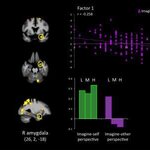
Knocking on wood is a common superstition in Western culture, mostly used to prevent bad luck after talking about good fortune, but sometimes to reverse bad fortune or undo a "jinx."
Other cultures maintain similar practices, like spitting or throwing salt, after someone has tempted fate. Even people who aren't superstitious often participate in these practices. And since this baseball playoffs start today, don't even get one of them going about their crazy superstitions and rituals.
A recent paper contends that these superstitions actually do "reverse" perceived bad fortune.…

